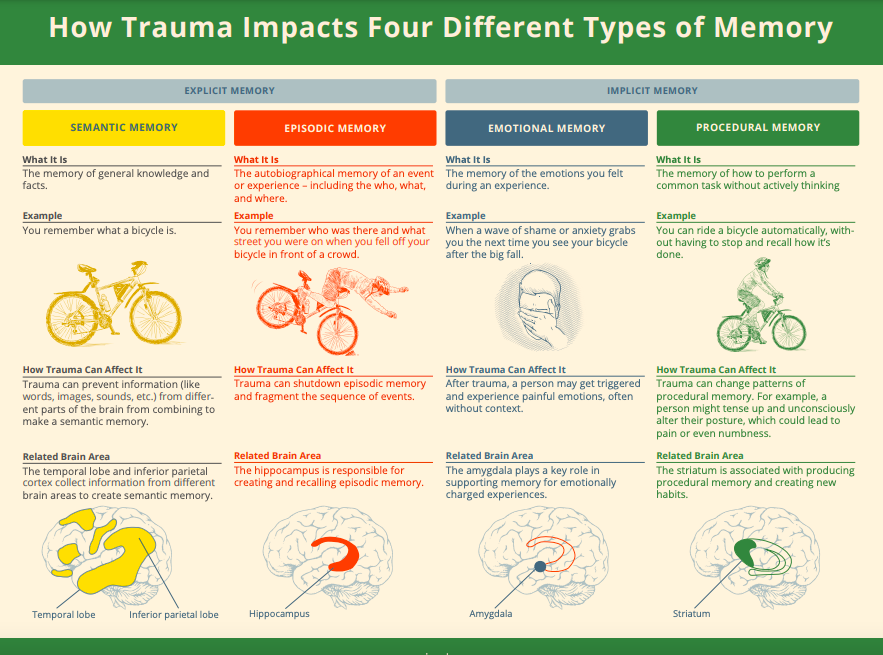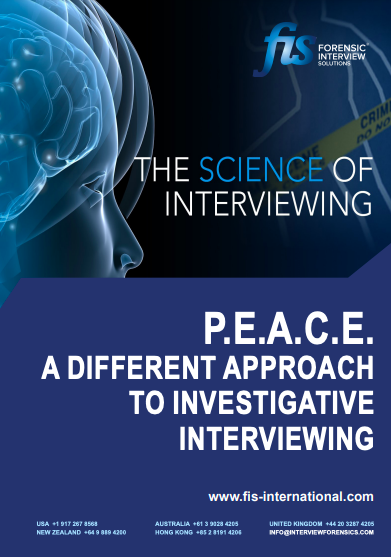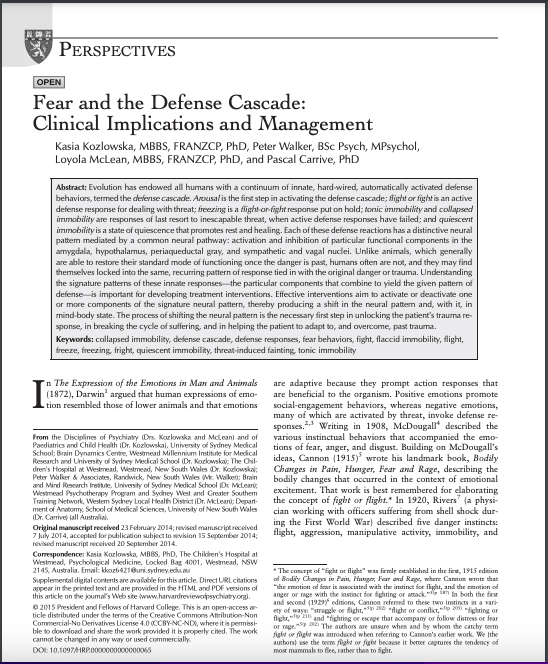As human rights monitors, we have to recognize the traumatic nature of the experiences that we ask people to share with us. This requires us to have an understanding of how people are impacted by trauma, and how trauma influences memory. Please note: this module has two videos of content.
In Module 1 Video 1, you will:
- Understand what trauma is and how it impacts people in the short- or long-term
- Learn how people respond to traumatic events
- Be able to identify the four response patterns exhibited by survivors of trauma
- Understand what influences responses to trauma
Main Takeaways:
- A traumatic event, or a trauma, is a shocking or frightening event that is out of the ordinary. Experiencing a trauma has both short-term and long-term consequences.
- When perceiving a threat, people go through the so-called ‘defence cascade’ to respond to the experience of fear. The six stages of the defence cascade are: Freeze, Flee, Fight, Fright, Flag and Faint. The stage in which people end up when experiencing a traumatic event is something to be aware of as it might impact the interview.
- There are four different response patterns to trauma: low/resilient, recovery/remitting, distress/disruption, delayed response. It is important to be aware of these patterns when conducting an interview, in order to avoid biases on how people are affected by trauma.
- A number of individual characteristics influence people’s response to trauma, including their age, gender, social role, past experiences, etc.
In Module 1 Video 2, you will:
- Learn the steps of the memory process and understand how experiencing trauma influences these steps
- Recognise how fear influences memory
- Understand what the PEACE model of interviewing is
Main Takeaways:
- Memory is a reconstructive process. To remember things that happened to us, we go through three steps: encoding, storing, and remembering. The way memory is organized can have a powerful impact on how people remember. Gender, culture and other individual characteristics also influence the way people construct their memory.
- The experience of trauma influences the process of remembering and interferes with people’s ability to make meaning of what happened/is happening to them. As a result, a ‘traumatic memory’ is often less detailed, more fragmented and more painful. In this context, fear acts as a ‘highlighter’ in people’s memory, making them remember better the parts of the traumatic event that triggered it. The interviewer needs to be aware that trauma and fear may impact memory.
- The acronym P.E.A.C.E. summarizes the five stages of the interview process: Plan and Prepare; Engage and Explain; Account; Closing; and Evaluation. When applying this model, interviewers are encouraged to be fair and open-minded and to pursue the collection of reliable, accurate and gender-sensitive information.
Before moving on to the quiz, please check out the additional resources provided under the “Materials” tab above.







